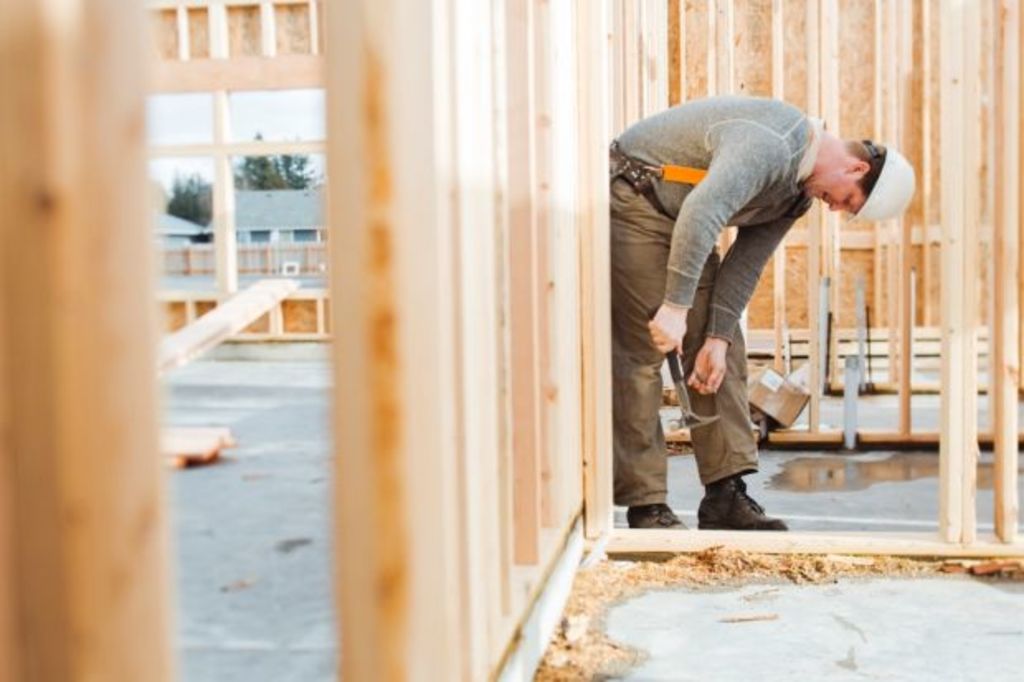The five things to do to make your tradie's life easier

We’ve all heard the stories about dodgy tradies – doing a poor quality job, dragging it out for weeks at a time or failing to show up at all.
But what about the horror customers? The timewasters, late-payers, mind-changers, micro-managers and feuding couples who put the workmen in the middle?
For Matt*, a building site manager, one of his most memorable clients left him passive aggressive notes for using a kitchen cloth. He’d wiped the bench after the dishwasher man left some fingerprints installing it, and then failed to return it to exactly the same spot.
The next day there was note stuck to the counter – everything in the kitchen is, “For private use only, not for the use of anyone in the construction industry.”
And just to drive the message home, there was also note in the fridge, “Everything in this fridge is for personal use only.” A colleague had put a bottle of soft drink in there – it had been unceremoniously binned.
Shawn*, a handyman, has a story about doing his best to fit in a bunch of work for a real estate agency right before Christmas, going above and beyond to make sure it was all finished. When it came to the bill “they turned around and told us, no, actually, we’re only paying this much”.
So how can you make life for your tradie a bit easier? Tradebusters, a tradesmen concierge service, asked around and came back with these five tips.
1. When you’re getting a quote, make sure you respect the tradie’s time
It’s good to get quotes – essential, in fact, something your regular tradie encourages and understands. But don’t invite three to five workmen over to, say, look at your kitchen and provide quotes all at the same time. Putting them in a competitive environment sends the message that you are only worried about the price, not the quality of the job. It might be enough to convince them to walk away without ever getting back to you.
Also, keep in mind that many tradies won’t charge for an in-person quote, but the process can take up to half a day – so respect their time and make the effort to see them and talk about the project individually.
You should “always get a quote”, Jack* the plumber says, but when it comes to the price – “ask for their hourly rate, ask about the cost of materials” – you should ask what you’re paying for to make sure you’re across what costs are involved. If you are using a better quality paint, for example, you should be seeing it in the budget.
2. Be sure you want the job done
“We hear many stories from tradies where they spend hours of time visiting customers, only to be told by that they’re ‘not sure I will do the job’ or ‘just wanted an idea’,” a spokesman for Tradebusters says.
If you’re not sure, discuss the project and the price with your prospective tradie over the phone. Don’t formally book them to physically come in until you’re definite that you’ll give someone the go ahead to actually do the job, and once you’ve got a ballpark price range.
And once you have settled on going ahead, it’s good to know exactly what the job is – and communicate that to your tradie. “It’s all about decisions,” says Jack – not knowing what you want wastes both your time, and his.
“If you’re renovating a bathroom, know what colours you want.” He “never wants to do a job twice” – it’s frustrating for both the tradesman and the customer.
Shawn notes that he’s had issues with husbands and wives not being on the same page – so make sure you and your partner are in agreement about what work you want done. Your tradie would prefer one united front, not two bosses. “Don’t change your mind on the fly.”
3. Don’t ask for a cheaper solution, then complain about quality
You know the expression “you get what you pay for” – well, yes. Don’t ask the tradie to cut costs by using cheap materials, or take short cuts, and then turn around and complain to them about the quality of the final product.
Keep in mind it’s their area of expertise too – you are unlikely to know more than they do when it comes to what is important, time and material wise.
4. Don’t change your mind about the job while it’s happening and try to get an “upgrade” – and not expect a price adjustment
“A real tradie hate are customers that request upgrades after the quote acceptance – and they expect it at no additional cost,” a spokesman from Tradebusters says.
When you get a quote, a lot of factors are taken into consideration, including the time needed and the type of materials and finishes.
There are plenty of stories of customers wanting to change doors or windows or asking for a granite kitchen top instead of laminated. It can lead to some uncomfortable conversations and tradies prefer to avoid customers who try this tactic.
5. Don’t delay the project
Delays to a project aren’t just a hassle to the customer, they can also cost the tradie money as a business – they have only budgeted for a certain amount of time.
One electrician said he was called in repeatedly “to install lights as the customer purchased them individually over several weeks” – which they had not been told about, or budgeted for.
If the job requires certain materials or fittings to be available – make sure they are there.
The same goes for access. Shawn the builder says communication is important, particularly if several parties (ie landlords and tenants) are involved. Be honest and realistic about when you can be home and what time you can provide access.
He also suggests refraining from dictating to the tradie how long the job will take – don’t tell them, “oh, it’ll only be an hour” when it could take a day, depending on what needs to be done.
Another hot tip – tradesmen are not that fussed if the place is a bit messy. “Don’t worry about cleaning up – I don’t care.”
And his most important piece of advice? “Pay your bills on time.”
*All tradie names have been changed
We recommend
States
Capital Cities
Capital Cities - Rentals
Popular Areas
Allhomes
More







